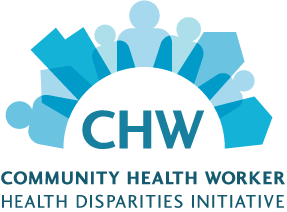Community Health Worker Training and Health Education in a New Orleans Public-Turned-Mixed-Income Housing Community
Overview
To improve health services for the residents and neighbors of Harmony Oaks (formerly the C.J. Peete Housing Development, also known as the Magnolia Projects) in the Central City neighborhood of New Orleans, Urban Strategies, Inc., created a community health worker (CHW) training and health education program using the With Every Heartbeat Is Life (WEHL) program from May 2009 to July 2010. Urban Strategies modified the WEHL program to fit the community’s needs and trained residents as CHWs to provide heart health education and outreach in Central City.
Program Goal
The main focus of the program was to discuss and demonstrate simple, culturally appropriate ways to prevent heart disease by reducing risk factors, including high blood pressure, diabetes, poor nutrition, and low physical activity.
Implementation Strategies
Urban Strategies found that housing residents had many risk factors for heart disease. For example, 28 percent had diabetes, 56 percent had hypertension, and 20 percent smoked at home. Urban Strategies also learned that members of the community wanted health education, nutrition, and recreation programs.
Using the WEHL program, Urban Strategies trained a core group of CHWs to run neighborhood events. Urban Strategies adapted the WEHL program using train-the-trainer and community education with screening strategies. The organization also tailored the curriculum (e.g., condensing sessions) to include topics found to be vital to the community, such as preventing lead poisoning (a topic led by the city health department), prevention and testing for HIV and other sexually transmitted infections, and help for mental health issues.
Once trained, the CHWs worked with the housing authority to set up WEHL community education sessions for housing residents and neighbors. The Housing Authority of New Orleans also partnered with local organizations and health professionals to make health screenings available as part of the WEHL sessions. The program consisted of two 8-week programs that included role playing, cooking demonstrations, visual aids, hands-on activities, and customized quizzes. For positive reinforcement, field trips to health clinics, farmers’ markets, and other locations were also included.
Key Results/Outcomes
Data collection: Pre- and post-questionnaires were administered to participants to evaluate the program’s effectiveness in changing knowledge, attitudes, beliefs, and behaviors related to heart disease.
- Seven participants completed the community education sessions, a 95 percent attendance rate.
- Participants’ average age was 47 years; 86 percent of participants were female.
- Overall health knowledge improved by 16.7 percent (from 66 percent to 77 percent).
- Physical activity improved by 81.8 percent (from 18 percent to 99 percent).
- Participants reporting being in the “Action” or “Maintenance” stage of change increased by 4.2 percent (from 96 percent to 100 percent).
Behavioral Frequency Score
On a scale of 1 to 4 (1=never, 2=sometimes; 3=most of the time; 4=all the time), participants reported making improvements in their heart healthy behaviors to reduce their salt and sodium intake, cholesterol and fat intake, and use of strategies to improve their weight management.

| Test Type | Salt and Sodium | Cholesterol and Fat | Weight Management | Overall Behavior |
|---|---|---|---|---|
| Pre-test | 2.9 | 2.9 | 3.0 | 2.9 |
| Post-test | 3.2 | 3.4 | 3.3 | 3.3 |
- Six of the seven trainees graduated from the WEHL CHW training. In one-on-one interviews, the participants said that the classes inspired them to take care of their own health and that of others. They also learned a great deal about the importance of healthy behaviors and what they could do to lead longer, healthier lives.
- Four participants went on to become CHWs.
Lessons Learned
Sometimes, people in the greatest need make the best teachers.
Despite having difficulty recruiting participants, because many residents had been displaced by Hurricane Katrina, this project was able to accomplish some significant things. More than half of the seven trainees who started the WEHL training program were residents of Harmony Oaks who wanted tools to improve their own health and that of their families and neighbors. The trainees went on to become important health leaders in their New Orleans neighborhood. One became a candidate for a position as a health education facilitator. Two graduates were invited to lead health education classes at their churches, and another graduate entered a program to become a certified nursing assistant.
Last Updated: June 2014







